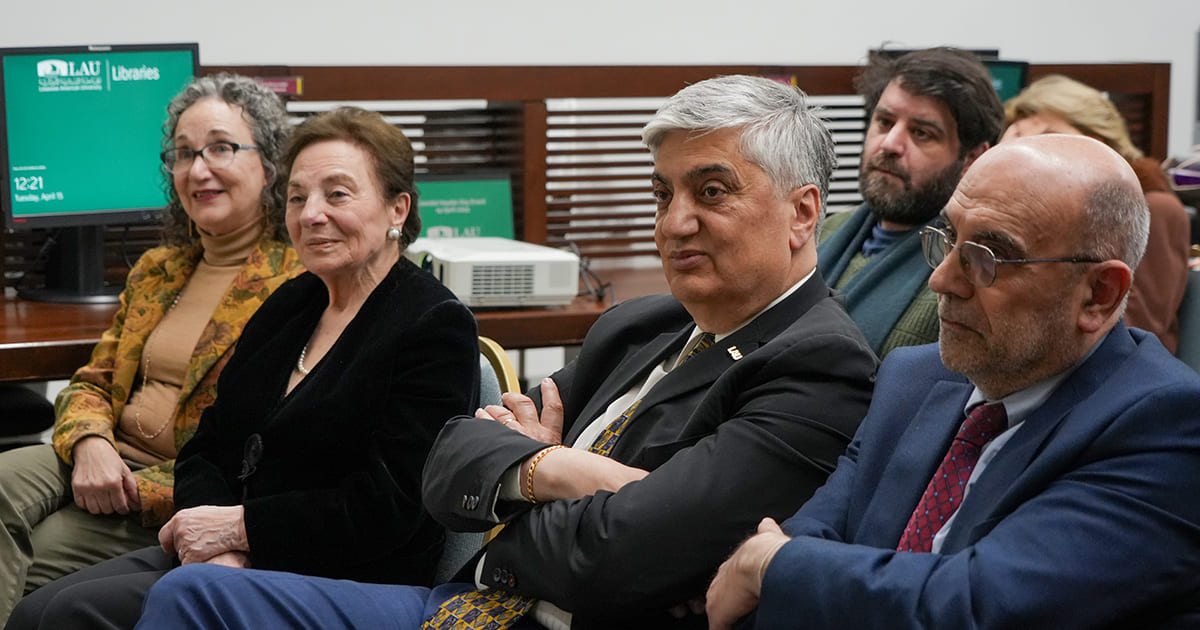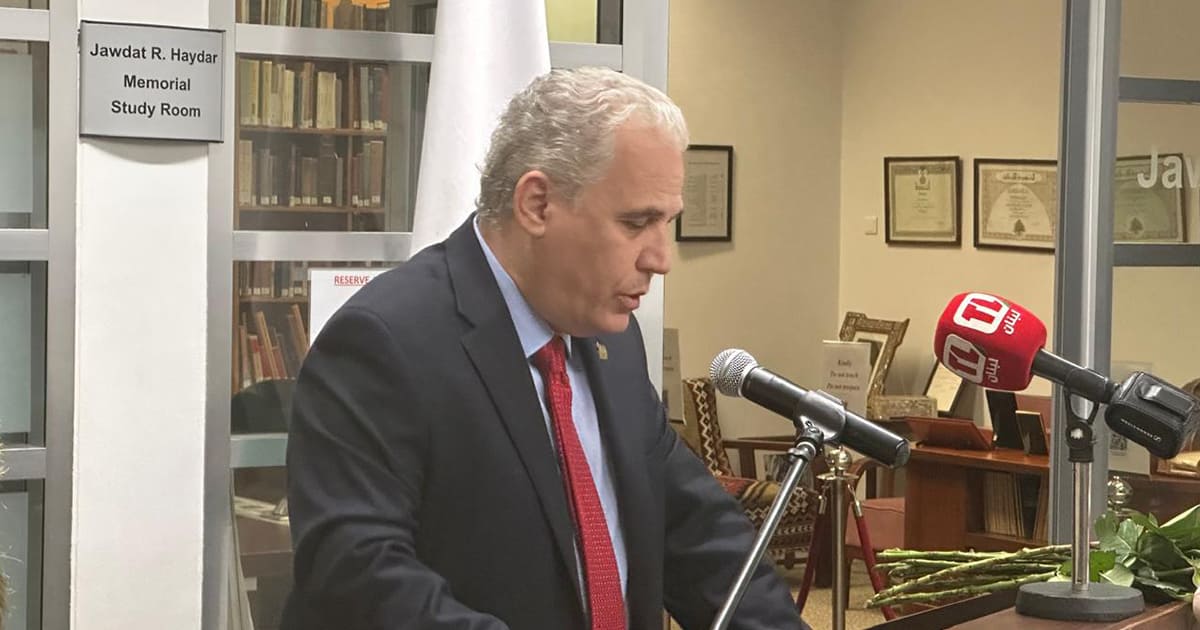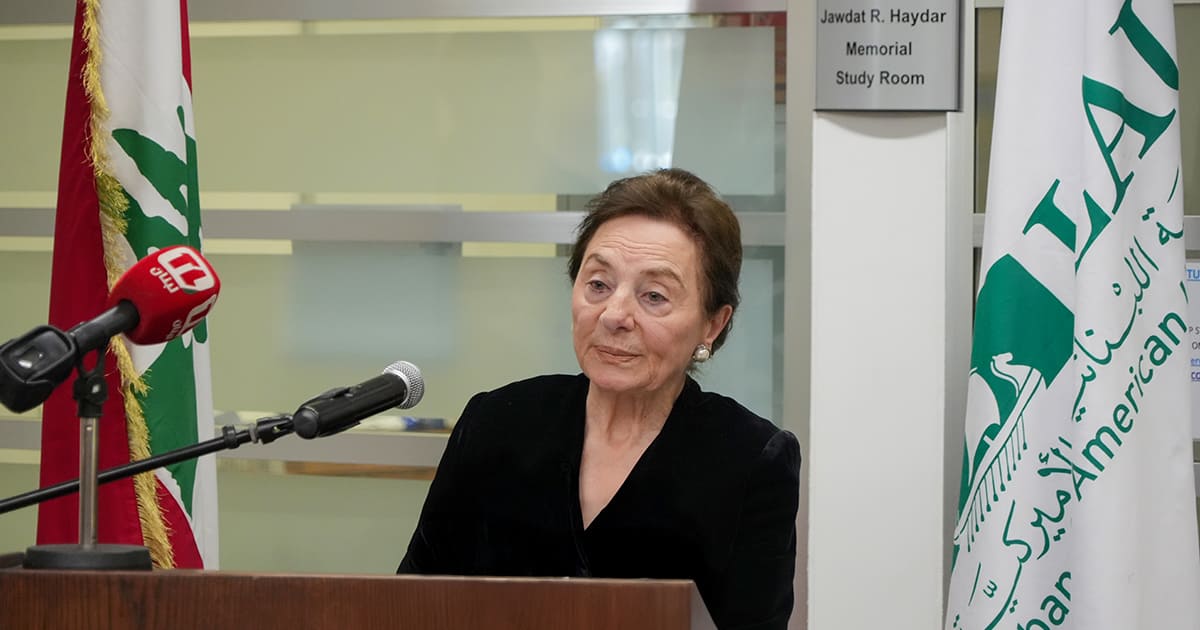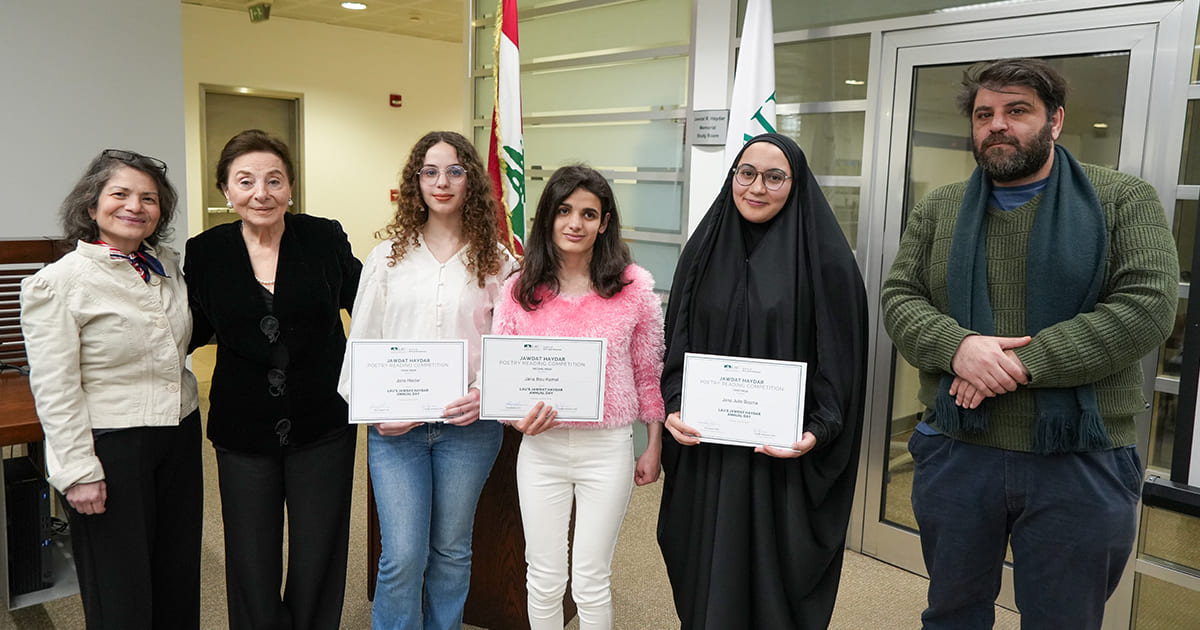A Century and Two Decades Later, Jawdat Haydar’s Poetry Still Speaks at LAU
LAU commemorated the life of Jawdat Haydar with a poetry reading competition and tribute event celebrating the relevance of his humanist creative vision.
Marking 120 years since the birth of renowned poet Jawdat Haydar, the School of Arts and Sciences (SoAS), with the support of the Department of English and Creative Arts, the LAU Libraries and the Center for Innovative Learning, brought together faculty, staff, students and admirers of Haydar’s poetry to reflect on the enduring relevance of his verse and the values it embodies in contemporary times.
Held on April 15, this year’s event featured the unveiling of a collection of multimedia pieces designed to teach students about the life and times of the late poet. This collection, made accessible via QR codes, is housed within the Jawdat Haydar Memorial Study Room, which was generously donated in 2011 by Haydar’s daughter, Ms. Shahina Haydar Osseiran.
During the event, students who participated in the annual Jawdat Haydar Poetry Reading Competition shared their readings with the audience. The competition invited LAU undergraduate students to submit recorded interpretations of Haydar’s poems—whether spoken, sung or adapted into other formats—along with a written explanation of their creative choices.
Participants were afforded artistic freedom in their presentations on Haydar’s legacy through personal and contemporary lenses.
Born in Baalbek in 1905, Haydar witnessed a century of upheaval in Lebanon and the region. After losing his mother to typhus at age nine, he made his way to Turkey alone, where his father and brother were stationed under Ottoman rule.
Haydar’s educational path took him from AUB to France and later to the University of North Texas, where he earned his degree. There, far from home, he found his voice in poetry. His work, marked by a deep sense of humanism and timeless wisdom, has left a lasting impression on generations of readers, championing ideals of peace, unity and dignity that resonate across times and borders.
The event was moderated by Associate Professor and Assistant Provost for Educational Resources and Innovation Jordan Srour and held outside the study room at the Riyad Nassar Library on the Beirut Campus.
In his opening remarks, SoAS Dean Haidar Harmanani emphasized the importance of honoring Lebanese literary figures whose work continues to inspire today’s generation.
“The history of this day at LAU is rooted in our shared commitment to the humanities and to the enduring belief that the art of language has the power to transform, to heal, and to elevate,” he said.
For SoAS, he added, the event is more than a tradition, as it aims to instill in the students critical thought, cultural fluency, and “the ability to give voice to both beauty and truth.”
Most poignant were Ms. Osseiran’s observations about her father’s conviction that poetry was a bridge between humanity and nature, which she believes to be “a vision painfully relevant in today’s environmentally precarious world,” she said.
The legacy of her father’s great work, she added, “remains not entombed in textbooks, but alive in the voices of students” who continue to find meaning in its measured lines.
Submissions of this year’s participants were evaluated on both analytical depth and performative interpretation. In this light, the judging panel, comprising LAU faculty and Ms. Osseiran, sought actual connection rather than flawless recitation.
Upon inviting the three winners to the stage, SoAS Assistant Professor Omar Sabbagh explained how the jury “listened for that moment when a student’s voice catches—when the centuries between poet and reader collapse,” while evaluating their submissions.
First-year English student Jana Haidar earned third place for her rendition of A Lost Hope, a poem that delves into themes of disillusionment, the fragility of ideals, and the emotional toll of shattered expectations. “Haydar’s words felt deeply personal,” she said. “They reminded me how even the strongest hopes can be broken, and yet there’s a kind of strength in facing that truth.”
Second place went to Jana Bou Kamel, a third-year translation student, for her reading of Keep Your Faith, a poem she described as especially profound given her experience as a visually impaired individual. “Success is not a matter of luck, but a matter of individual effort,” she said. “This poem spoke to the persistence and inner strength that guide my daily life.”
The first-place award was handed to Jana Julie Basma, a third-year psychology student, for her performance of the politically-charged poem Our Hills on Fire, depicting Lebanon’s landscapes amid conflict. The poem, which Basma discovered while studying in Haydar’s Memorial Study Room, parallels past wartime imagery with modern Lebanon’s struggles.
Following the competition, participants visited the study room, which houses Haydar’s personal library, manuscripts, desk and chair, and now a set of multimedia experiences. Through initiatives like this, Haydar’s words continue to spark the intergenerational dialogue he believed was essential to keeping poetry and education available forces in society.



